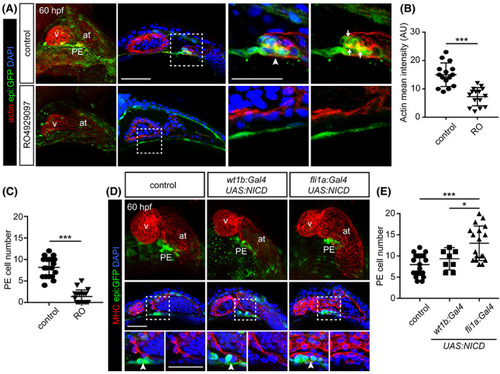FIGURE 1
- ID
- ZDB-FIG-201229-5
- Publication
- Andrés-Delgado et al., 2020 - Notch and Bmp signaling pathways act coordinately during the formation of the proepicardium
- Other Figures
- All Figure Page
- Back to All Figure Page
|
Notch signaling in the endothelium is necessary for proepicardium formation. A, 3D projections, optical sections and zoomed images of a 60 hpf control zebrafish heart compared with a RO‐treated animal. |

